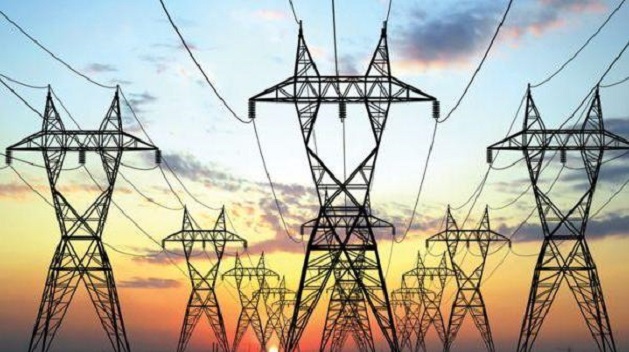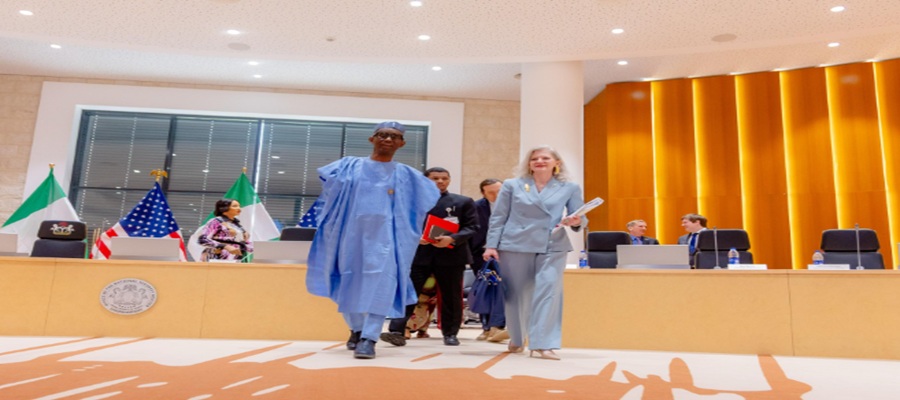General News
AfDB, World Bank Collaborate to Transform Africa’s Energy Access, Connect 300 million by 2030

Connecting 300 million Africans to electricity within the next five years is within reach through collaborative effort and commitment to implementation, participants at the Africa Energy Summit in Dar es Salaam, Tanzania, heard on Monday.

The summit is organized by the Government of Tanzania and Mission 300, an unprecedented collaboration between the African Development Bank Group, the World Bank Group and global partners to address Africa’s electricity access gap using new technology and innovative financing.
Nearly 600 million Africans lack electricity, a critical resource for economic development and job creation.
Speaking during the first panel discussion of the opening day of the two-day Summit, African Development Bank President Dr. Akinwumi Adesina set the summit’s tone of action and implementation, emphasizing practical solutions to achieve the ambitious goal, from regulatory reforms to private sector engagement.
He called for active involvement from a wide range of stakeholders, including bilateral and multilateral institutions, private sector entities, civil society organizations, and foundations.
“This is mission critical… Our mission here is to say we need everybody… It’s not about us, it’s about those who are not here, and we must listen and hear and make sure this is an action-driven summit… We can’t do Mickey Mouse business…
“We can’t have a situation where Africa does not have enough electricity,” Adesina told the audience, which included several African energy ministers, international development partners and private sector titans, civil society organizations, and foundations, attending the first day of the summit.
The second day of the summit will see the participation of several heads of state from across Africa, who will join more than 1,500 other participants. Together they will chart Africa’s course toward universal access to energy.
“We have a clear path to reaching these 300 million people,” Dr. Adesina stressed, distinguishing the initiative from previous efforts. He emphasized that the program seeks to transform Africa’s vast potential into reality through comprehensive electrification.
“With power, Africa will not just meet expectations but exceed them, becoming a competitive and prosperous continent,” he added.
Mission 300 will incorporate robust accountability measures, including country-specific monitoring and evaluation systems and the Africa Energy Regulatory Index to track progress. “This is all about accountability, transparency, and delivery while letting Africa develop with pride,” Adesina stated.
Adesina highlighted the devastating toll of traditional cooking methods based on firewood and charcoal, resulting in the death of 600,000 women and children annually due to smoke exposure.
The crisis extends beyond energy access, affecting environmental sustainability through deforestation and biodiversity loss. “It’s not just about energy transition,” Adesina said. “This is about dignity. Africa must develop with dignity and pride, and access to clean cooking solutions is fundamental to achieving this goal.” He praised Tanzania for developing a comprehensive national strategy to address this issue.
World Bank Group President Ajay Banga expressed optimism about the initiative, saying its ambitious objectives are achievable through hard work, particularly in ensuring a conducive environment for the private sector to participate. He emphasized the need for predictability of currencies, regulatory frameworks and land acquisition to incentivize investments supporting Mission 300.
In his remarks, Rajiv Shah, President of The Rockefeller Foundation, called global philanthropists to support the initiative.
“Please join us in getting behind the ideas of this initiative and the country compacts that the leaders will be signing. What is at stake is the future of African economies, the future of African young people, and the future of our world,” he said, adding that his foundation was committing $65 million to the program.
Speaking after the fireside chat, United Nations Deputy Secretary-General Amina Mohammed emphasized that energy access is not merely about power delivery, but about what that power will connect and enable.
“It is important that we see food systems at the helm of all of this, and that they are powered by the energy that you will connect,” she stated.
Mohammed explained how energy connectivity would catalyze transformative change in rural communities, particularly for women and youth, through access to digital financial services, online education, and e-commerce opportunities.
However, she stressed that realizing these ambitions would require significant financial engineering and private sector engagement. “The private sector’s got to lean in and it won’t lean in if the message is that your finance environment is not conducive to us,” she noted, calling for reforms in credit rating systems and financial architecture.
“When you want to put together the financing for energy it is not easy and it requires many people at the table in parallel with what we are doing, the policy and the regulation, designing these pipelines and getting the money ready.”
The summit is expected to yield two significant outcomes: the Dar es Salaam Energy Declaration, outlining commitments and practical actions from African governments to reform the energy sector, and the first set of National Energy Compacts, which will serve as blueprints with country-specific targets and timelines for implementation of critical reforms.
General News
Why Nigeria’s Banks Still on Shaky Ground with Big Profits, Weak Capital

By Blaise Udunze
Despite the fragile 2024 economy grappling with inflation, currency volatility, and weak growth, Nigeria’s banking industry was widely portrayed as successful and strong amid triumphal headlines. The figures appeared to signal strength, resilience, and superior management as the Tier-1 banks such as Access Bank, Zenith Bank, GTBank, UBA, and First Bank of Nigeria, collectively reported profits approaching, and in some cases exceeding, N1 trillion. Surprisingly, a year later, these same banks touted as sound and solid are locked in a frenetic race to the capital markets, issuing rights offers and public placements back-to-back to meet the Central Bank of Nigeria’s N500 billion recapitalisation thresholds.

The contradiction is glaring. If Nigeria’s biggest banks are so profitable, why are they unable to internally fund their new capital requirements? Why have no fewer than 27 banks tapped the capital market in quick succession despite repeated assurances of balance-sheet robustness? And more fundamentally, what do these record profits actually say about the real health of the banking system?
The recapitalisation directive announced by the CBN in 2024 was ambitious by design. Banks with international licences were required to raise minimum capital to N500 billion by March 2026, while national and regional banks faced lower but still substantial thresholds ranging from N200 billion to N50 billion, respectively. Looking at the policy, it was sold as a modern reform meant to make banks stronger, more resilient in tough times, and better able to support major long-term economic development. In theory, strong banks should welcome such reforms. In practice, the scramble that followed has exposed uncomfortable truths about the structure of bank profitability in Nigeria.
At the heart of the inconsistency is a fundamental misunderstanding often encouraged by the banks themselves between profits and capital. Unknown to many, profitability, no matter how impressive, does not automatically translate into regulatory capital. Primarily, the CBN’s recapitalisation framework actually focuses on money paid in by shareholders when buying shares, fresh equity injected by investors over retained earnings or profits that exist mainly on paper.
This distinction matters because much of the profit surge recorded in 2024 and early 2025 was neither cash-generative nor sustainably repeatable. A significant portion of those headline banks’ profits reported actually came from foreign exchange revaluation gains following the sharp fall of the naira after exchange-rate unification. The industry witnessed that banks’ holding dollar-denominated assets their books showed bigger numbers as their balance sheets swell in naira terms, creating enormous paper profits without a corresponding improvement in underlying operational strength. These gains inflated income statements but did little to strengthen core capital, especially after the CBN barred banks from using FX revaluation gains for dividends or routine operations. In effect, banks looked richer without becoming stronger.
Beyond FX effects, Nigerian banks have increasingly relied on non-interest income fees, charges, and transaction levies to drive profitability. While this model is lucrative, it does not necessarily deepen financial intermediation or expand productive lending. High profits built on customer charges rather than loan growth offer limited support for long-term balance-sheet expansion. They also leave banks vulnerable when macroeconomic conditions shift, as is now happening.
Indeed, the recapitalisation exercise coincides with a turning point in the monetary cycle. The extraordinary conditions that supported bank earnings in 2024 and 2025 are beginning to unwind. Analysts now warn that Nigerian banks are approaching earnings reset, as net interest margins the backbone of traditional banking profitability, come under sustained pressure.
Renaissance Capital, in a January note, projects that major banks including Zenith, GTCO, Access Holdings, and UBA will struggle to deliver earnings growth in 2026 comparable to recent performance.
In a real sense, the CBN is expected to lower interest rates by 400 to 500 basis points because inflation is slowing down, and this means that banks will earn less on loans and government bonds, but they may not be able to quickly lower the interest they pay on deposits or other debts. The cash reserve requirements are still elevated, which does not earn interest; banks can’t easily increase or expand lending investments to make up for lower returns. The implications are significant. Net interest margin, the difference between what banks earn on loans and investments and what they pay on deposits, is poised to contract. Deposit competition is intensifying as lenders fight to shore up liquidity ahead of recapitalisation deadlines, pushing up funding costs. At the same time, yields on treasury bills and bonds, long a safe and lucrative haven for banks are expected to soften in a lower-rate environment. The result is a narrowing profit cushion just as banks are being asked to carry far larger equity bases.
Compounding this challenge is the fading of FX revaluation windfalls. With the naira relatively more stable in early 2026, the non-cash gains that once flattered bank earnings have largely evaporated. What remains is the less glamorous reality of core banking operations: credit risk management, cost efficiency, and genuine loan growth in a sluggish economy. In this new environment, maintaining headline profits will be far harder, even before accounting for the dilutive impact of recapitalisation.
That dilution is another underappreciated consequence of the capital rush. Massive share issuances mean that even if banks manage to sustain absolute profit levels, earnings per share and return on equity are likely to decline. Zenith, Access, UBA, and others are dramatically increasing their share counts. The same earnings pie is now being divided among many more shareholders, making individual returns leaner than during the pre-recapitalisation boom. For investors, the optics of strong profits may soon give way to the reality of weaker per-share performance.
Yet banks have pressed ahead, not only out of regulatory necessity but also strategic calculation.
During this period of recapitalization, investors are interested in the stock market with optimism, especially about bank shares, as banks are raising fresh capital, and this makes it easier to attract investments. This has become a season for the management teams to seize the moment to raise funds at relatively attractive valuations, strengthen ownership positions, and position themselves for post-recapitalisation dominance. In several cases, major shareholders and insiders have increased their stakes, as projected in the media, signalling confidence in long-term prospects even as near-term returns face pressure.
There is also a broader structural ambition at play. Well-capitalised banks can take on larger single obligor exposures, finance infrastructure projects, expand regionally, and compete more credibly with pan-African and global peers. From this perspective, recapitalisation is not merely about compliance but about reshaping the competitive hierarchy of Nigerian banking. What will be witnessed in the industry is that those who succeed will emerge larger, fewer, and more powerful. Those that fail will be forced into consolidation, retreat, or irrelevance.
For the wider economy, the outcome is ambiguous. Stronger banks with deeper capital buffers could improve systemic stability and enhance Nigeria’s ability to fund long-term development. The point is that while merging or consolidating banks may make them safer, it can also harm the market and the economy because it will reduce competition, let a few banks dominate, and encourage them to earn easy money from bonds and fees instead of funding real businesses. The truth be told, injecting more capital into the banks without complementary reforms in credit infrastructure, risk-sharing mechanisms, and fiscal discipline, isn’t enough as the aforementioned reforms are also needed.
The rush as exposed in this period, is that the moment Nigerian banks started raising new capital, the glaring reality behind their reported profits became clearer, that profits weren’t purely from good management, while the financial industry is not as sound and strong as its headline figures. The fact that trillion-naira profit banks must return repeatedly to shareholders for fresh capital is not a sign of excess strength, but of structural imbalance.
With the deadline for banks to raise new capital coming soon, by 31 March 2026, the focus has shifted from just raising N500 billion. N200 billion or N50 billion to think about the future shape and quality of Nigeria’s financial industry, or what it will actually look like afterward. Will recapitalisation mark a turning point toward deeper intermediation, lower dependence on speculative gains, and stronger support for economic growth? Or will it simply reset the numbers while leaving underlying incentives unchanged?
The answer will define the next chapter of Nigerian banking long after the capital market roadshows have ended and the profit headlines have faded.
Blaise, a journalist and PR professional, writes from Lagos and can be reached via: [email protected]
General News
WEBINAR: Techeconomy Business Series Hosts Experts from MTN, Interswitch, BusinessPlus, others this Wednesday

Techeconomy, Africa’s leading technology, business and digital economy publication, has announced an upcoming edition of its Techeconomy Business Series, a virtual webinar.

Techeconomy
This month’s edition focused on “Navigating a Career in Tech Sales”, is scheduled for Wednesday, January 28, 2026, from 5:00 PM to 6:00 PM (WAT)
Register here: https://shorturl.at/mMvLu),
It will bring together seasoned professionals from across Africa’s technology ecosystem to share practical insights, real-life experiences, and career guidance for individuals looking to build or transition into successful careers in tech sales.
“As Africa’s digital economy continues to expand, tech sales has emerged as a critical growth driver, bridging innovation, customer adoption, and revenue generation,” said Joan Aimuengheuwa, managing editor at Techeconomy.
“The session is designed to equip professionals, young talents, and business leaders with a clearer understanding of the skills, mindset, and career pathways required to succeed in this fast-evolving field”, she added.
The panel features accomplished industry experts including, divisional head, Growth Marketing (Enterprise), Interswitch Group; Ekundayo Ayeni, co-founder, BusinessPlus; Adepeju Ajayi, manager, Mobile Advertising, MTN Nigeria; and Bukayo Ewuoso, Business Growth Consultant.
The session will be hosted by Imoh Anselem, an IT Project Manager and Customer Success Specialist.
Participants will gain insights into: Ogechi Okwechime
· Breaking into tech sales and identifying entry opportunities
· Key skills and competencies employers look for
· Career growth strategies within Africa’s digital economy
· Lessons from real-world sales and growth experiences
Webinar Details:
Date: Wednesday, January 28, 2026 | Time: 5:00 PM – 6:00 PM (WAT) | Format: Virtual (Zoom)
Registration/Access Link: https://shorturl.at/mMvLu
Attendance is free, but registration is required.
“The Techeconomy Business Series is part of Techeconomy’s ongoing commitment to fostering informed conversations, capacity building, and talent development across Africa’s technology and business landscape”, the managing editor added.
TAGS: #TechSales, #Techeconomy, #Techeconomy, #TechSales, #CareerInTech, #DigitalEconomy, #BusinessSeries, #AfricaTech, #TBS #TecheconomyBusinessSeries
General News
Nigeria Treats Religious Violence as Attack on State – NSA Ribadu

National Security Adviser Nuhu Ribadu has said the federal government considers religious violence an attack on the Nigerian state, stressing that the protection of all citizens, regardless of faith, is non-negotiable.

According to presidential spokesperson Bayo Onanuga, Ribadu made the remarks in Abuja at the close of a US–Nigeria Joint Working Group session.
“Nigeria is a deeply plural society, and the protection of all citizens, Christians, Muslims, and those of other beliefs, is non-negotiable,” Ribadu said.
“Violence framed along religious lines is treated as an attack on the Nigerian state itself.”
In a follow-up post on X, Ribadu said the joint working group has recorded “tangible operational gains” in the fight against terrorism.
The working group was set up following Nigeria’s designation as a Country of Particular Concern (CPC) by US President Donald Trump, a label that often triggers policy actions aimed at ending severe violations of religious freedom.
At the meeting, Ribadu led Nigeria’s delegation, which included representatives from 10 ministries and agencies, while the US delegation, made up of eight federal agencies, was led by Allison Hooker, US under-secretary of state.
Ribadu said Nigeria-US security cooperation has moved from dialogue to action, resulting in the disruption of terrorist networks and transnational criminal groups. He also praised the US for supplying drones, helicopters, platforms, spare parts, and other support systems over the past five years.
Speaking at the session, Hooker said the US was committed to expanding its partnership with Nigeria, particularly on deterring violence against Christian communities.
“Today, we are here to discuss how we can work together to deter violence against Christian communities, prioritising counter-terrorism, insecurity, investigation of attacks, and holding perpetrators accountable,” she said.
She added that efforts would focus on reducing killings, forced displacement, and abductions of Christians, especially in Nigeria’s north-central states

 News1 day ago
News1 day agoAnambra Cuts Monday Pay to Kill Sit-at-Home

 E-Financial1 day ago
E-Financial1 day agoFirst Asset Management Receives Upgraded Ratings from Agusto &Co and DataPro

 General News1 day ago
General News1 day agoNigeria Treats Religious Violence as Attack on State – NSA Ribadu

 E-Financial1 day ago
E-Financial1 day agoCBN Prepares Fresh Debit Card Rules to Improve ATM Services

 E-Financial1 day ago
E-Financial1 day agoNIBSS, Others Flag 13,417 Nigerian Fraudsters on Person of Interest Portal

 News1 day ago
News1 day agoLIRS to Invoke NTAA to Recover Unpaid Taxes from Bank Accounts, Others

 General News6 hours ago
General News6 hours agoWEBINAR: Techeconomy Business Series Hosts Experts from MTN, Interswitch, BusinessPlus, others this Wednesday

 E-Business6 hours ago
E-Business6 hours agoFirm Identifies AI as Common Denominator in Entertainment Industry’s 2026 Security Threats














